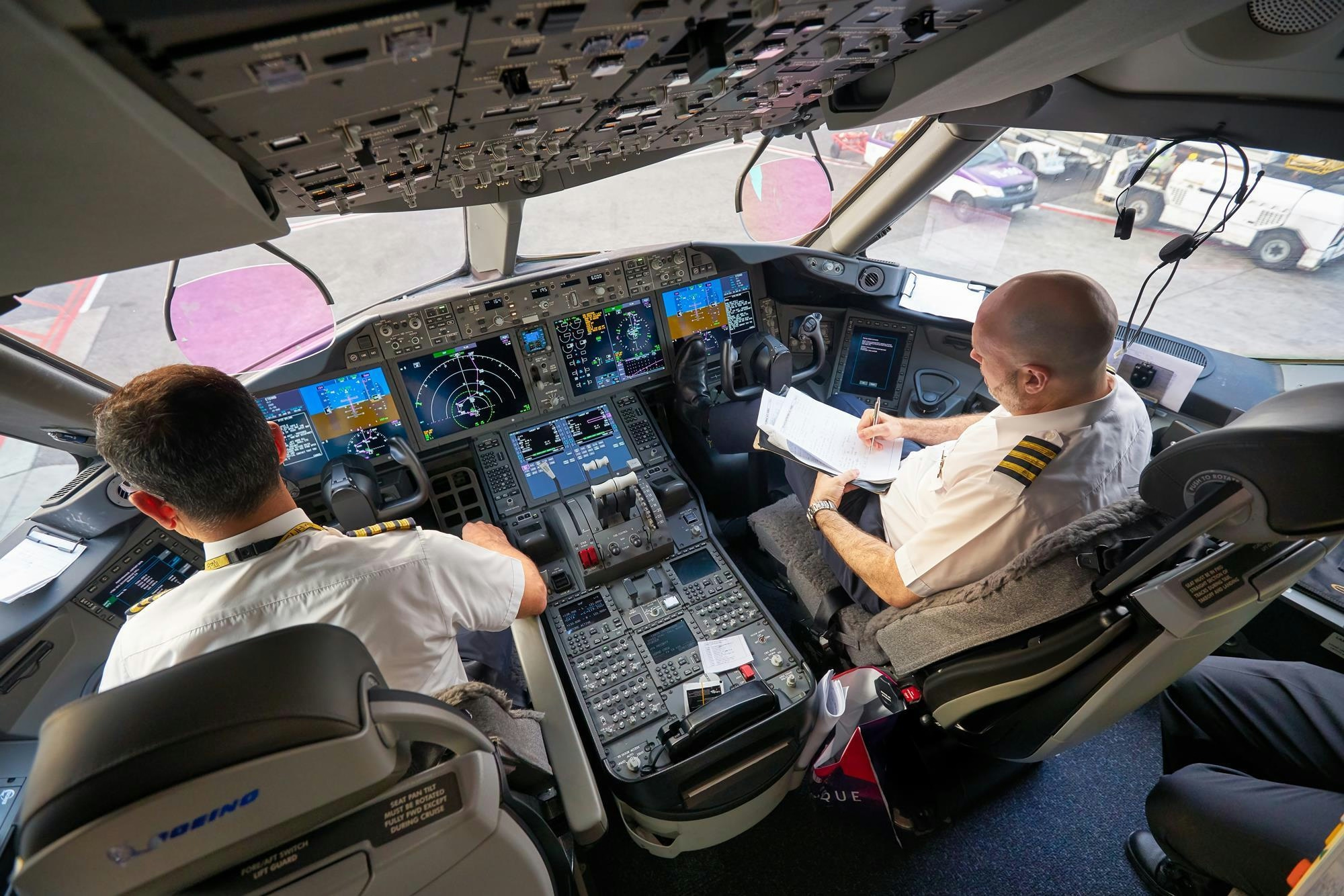AeroGenie — Seu Copiloto Inteligente.
Tendências
Categories
Challenges Facing the Airline Industry: AI, Pilot Strain, Technical Issues, and Regulatory Changes

Challenges Facing the Airline Industry: AI, Pilot Strain, Technical Issues, and Regulatory Changes
The airline industry is currently experiencing profound transformation driven by rapid technological advancements, evolving workforce dynamics, and an increasingly complex regulatory environment. As carriers seek to modernize their operations and improve passenger experiences, they confront a multifaceted array of challenges. These range from the integration of artificial intelligence (AI) into commercial processes to addressing pilot well-being, managing technical disruptions, and adapting to new regulatory frameworks.
AI-Driven Retailing and Its Implications
A significant development in airline commerce is the recent partnership between IBS Software and Amazon Web Services (AWS) to launch iRetail, an AI-first, cloud-native retailing platform designed specifically for airlines. This platform aims to replace outdated and fragmented legacy systems by leveraging real-time data and artificial intelligence to personalize offers, manage orders, and streamline settlements. Unlike traditional platforms, iRetail is modular and intelligent at every stage, promising airlines enhanced operational efficiency, faster innovation cycles, and greater control over their technology strategies.
Chris Branagan, Chief Technology Officer of IBS Software, described iRetail as being built for an “agentic world where AI is not a feature, but the foundation of every decision.” AWS contributes global scalability and reliability, supporting critical airline operations with 99.99% availability. The partnership anticipates introducing new AI-driven value streams by 2027, signaling a fundamental shift in how airlines engage with their customers.
Despite these promising advancements, the integration of AI has sparked debate within the industry. While AI facilitates dynamic pricing and demand forecasting, some observers and consumers have expressed concerns about potential price increases and diminished transparency. Airlines adopting these technologies face the challenge of balancing innovation with maintaining customer trust and navigating regulatory scrutiny.
Pilot Well-Being and the Human Element
Beyond technological innovation, the human dimension of aviation continues to present significant challenges. According to Oliver Wyman’s 2025 Flight Operations Brief, pilots are grappling with increased operational complexity and a pervasive lack of meaningful communication from management. Despite advances in automation, many pilots report feelings of isolation from decision-making processes and experience constant scrutiny with minimal positive feedback.
The report identifies the erosion of open and honest communication as a core issue rather than deficiencies in training or technology. Pilots seek recognition as collaborative partners rather than mere executors of instructions. Factors such as fatigue, frequent procedural changes, and residual effects from the COVID-19 pandemic have exacerbated their mental and emotional strain. Furthermore, some pilots are reluctant to voice concerns due to fears of negative repercussions, which poses risks to safety and transparency.
To address these challenges, recommendations include simplifying communication channels, fostering supportive management practices, and adopting a people-first approach. Without such changes, the industry risks pilot disengagement, a critical concern given the paramount importance of safety in aviation.
Technical Disruptions and Regulatory Developments
Operational disruptions continue to affect airline reliability. Recent technical failures compelled Air India flights to divert to Bhopal and Ulaanbaatar, underscoring the significant impact of system malfunctions on passengers and schedules. These incidents highlight the urgent need for airlines to invest in robust infrastructure to minimize disruptions and maintain operational resilience.
Simultaneously, regulatory changes are reshaping the industry landscape. Taiwan’s recent decision to lower the minimum age for commercial pilots to 18 and airline transport pilots to 21 exemplifies efforts to address workforce shortages. At the same time, new safety and environmental regulations introduce additional layers of complexity, requiring airlines to adapt swiftly to evolving standards.
Navigating a Complex Future
As airlines integrate AI technologies, address pilot well-being, manage technical risks, and comply with emerging regulations, they face a challenging and dynamic environment. Success will depend on striking a careful balance between technological advancement, operational resilience, and a renewed focus on the human factors central to aviation.

Emirates Unveils Cabin Design for New Boeing 777X

Eighteen Years On, the Airbus A380 Remains Central to a $34 Billion Airline

How a boom in luxury airline seats is slowing down jet deliveries

Navitaire Outage Attributed to Planned Maintenance

Airbus Plans Record Delivery of 870 Aircraft in 2026

DigiYatra Debuts Outside Aviation at India AI Impact Summit

Vietnam Orders Strengthen Boeing’s Commercial Outlook

Airbus Signals Uncertainty Over Future A400M Orders

JobsOhio Awards $2 Million Grant to Hartzell Propeller for Innovation Center

Collins Aerospace Tests Sidekick Autonomy Software on YFQ-42A for U.S. Air Force CCA Program
